Tribute to the “Epic of 1940”
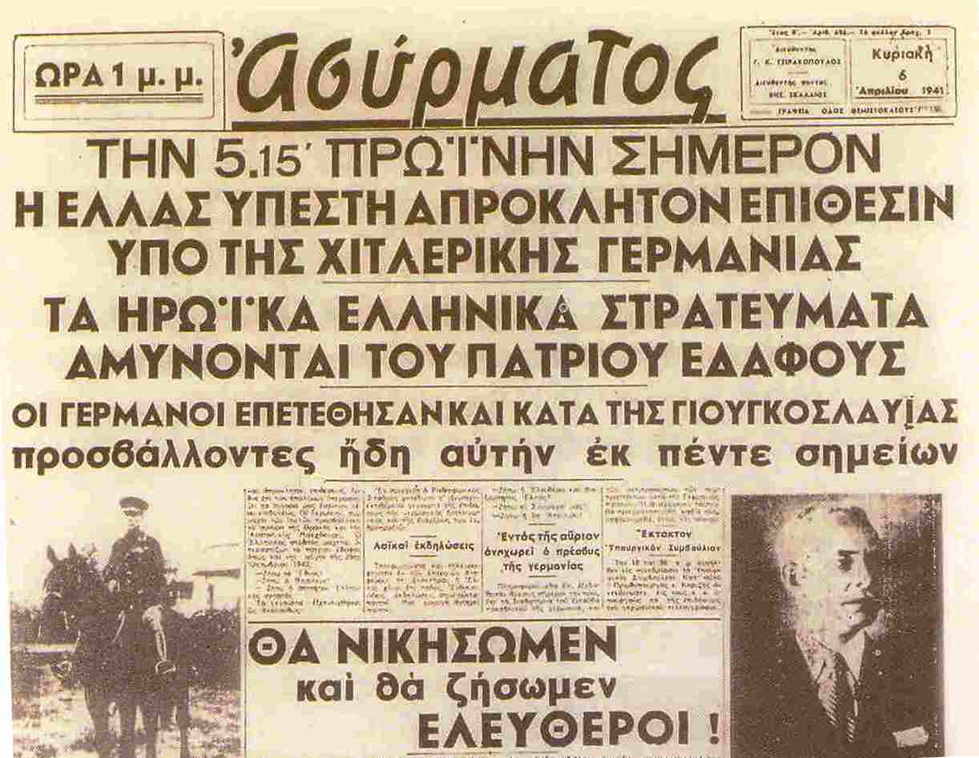
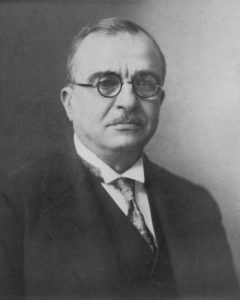 “The time has come for Greece to fight for her independence. Greeks, now we must prove ourselves worthy of our forefathers and the freedom they bestowed upon us. Greeks, now fight for your Fatherland, for your wives, for your children and the sacred traditions. Now, over all things, fight!”
“The time has come for Greece to fight for her independence. Greeks, now we must prove ourselves worthy of our forefathers and the freedom they bestowed upon us. Greeks, now fight for your Fatherland, for your wives, for your children and the sacred traditions. Now, over all things, fight!”
With these words, Ioannis Metaxas, Greek Prime Minister at the time, addressed the Greek nation, calling them to fight against Mussolini’s fascist troops.
On October 28th 1940, Italy dispatched an ultimatum demanding free passage of Italian troops through Greek territory and control of numerous strategic points in the country. The rejection of this humiliating ultimatum by Ioannis Metaxas, reflecting the general attitude of the Greek people as a whole, led to the immediate declaration of war on Greece by Italy, a war fought in the mountains of Epirus.
The enthusiasm of the Greek army, the spontaneous, all-embracing popular mobilisation in the war effort and the mountainous masses of Epirus allowed for the re-routing of the Italian troops off Greek territory and the spectacular counter-offensive by the Greek side inside Albanian territory.
 The Battle of Greece lasted a total of 216 days, marking the first victory for the Allies against the Italians and the Germans, also known as the Axis forces. The Greek victory was hailed with enthusiasm by the entire fighting world. Even the Germans admired the Greeks’ achievement. On April 10, 1941, after the capitulation to Germany, the Greece’s northern forts were surrendered. The Germans expressed their admiration of Greek soldiers, declared that they were honoured and proud to have such an army, as their adversary and requested that the Greek army commanders inspect the German troops, in a demonstration of honour and recognition! The German flag was then raised only after the complete withdrawal of the Greek army. A German Air-Force officer declared to Lieutenant General Dedes, Commander of the Greek Eastern Macedonia Division Group, that the Greek army was the first not to fear the “Stuka” fighter planes. “Your soldiers” he said, “instead of fleeing frantically, as they did in France and Poland, were shooting at us from their positions.”
The Battle of Greece lasted a total of 216 days, marking the first victory for the Allies against the Italians and the Germans, also known as the Axis forces. The Greek victory was hailed with enthusiasm by the entire fighting world. Even the Germans admired the Greeks’ achievement. On April 10, 1941, after the capitulation to Germany, the Greece’s northern forts were surrendered. The Germans expressed their admiration of Greek soldiers, declared that they were honoured and proud to have such an army, as their adversary and requested that the Greek army commanders inspect the German troops, in a demonstration of honour and recognition! The German flag was then raised only after the complete withdrawal of the Greek army. A German Air-Force officer declared to Lieutenant General Dedes, Commander of the Greek Eastern Macedonia Division Group, that the Greek army was the first not to fear the “Stuka” fighter planes. “Your soldiers” he said, “instead of fleeing frantically, as they did in France and Poland, were shooting at us from their positions.”
This had enormous significance as, it dispelled the myth that the Axis Forces were Omnipotent, it encouraged people to continue to resist, and it destroyed Mussolini’s prestige, while delaying Hitler’s scheduled attack on Russia.
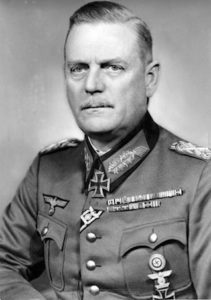 At the end of the war, German officers on trial at Nuremberg commented that if the invasion of Russia had taken place as scheduled early in the spring of 1941- instead of the end of June- they would have conquered the Soviet Union before the winter of 1941, given that winter conditions had successfully stopped the German advance. Field Marshall Keitel, who was Chief of Staff of the German Army, was very bitter when he said “The unbelievably strong resistance of the Greeks, delayed the German attack against Russia by two or more vital months. If we did not have this long delay, the outcome of the war would have been different on the Eastern front, and in general. And roles would have been reversed, with others been accused and sitting as defendants today”.
At the end of the war, German officers on trial at Nuremberg commented that if the invasion of Russia had taken place as scheduled early in the spring of 1941- instead of the end of June- they would have conquered the Soviet Union before the winter of 1941, given that winter conditions had successfully stopped the German advance. Field Marshall Keitel, who was Chief of Staff of the German Army, was very bitter when he said “The unbelievably strong resistance of the Greeks, delayed the German attack against Russia by two or more vital months. If we did not have this long delay, the outcome of the war would have been different on the Eastern front, and in general. And roles would have been reversed, with others been accused and sitting as defendants today”.
“If the Russian people managed to raise resistance at the doors of Moscow, and halt and reverse the German torrent, they owe it to the Greek People, as they delayed the German divisions during the most crucial time.” (Quote from his memoirs on WWII)
Georgy Constantinovich Zhoucov, Soviet Army Marshal.
This amazing Greek victory over the Italians became known as “The Epos of 1940” to Greeks and the rest of the world. It was the first defeat of the Axis powers and gave hope to the entire world that the aggression could be stopped.
Allies and enemies have said:
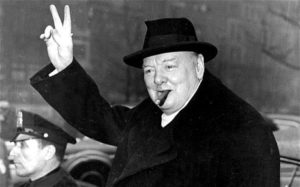 Winston Churchill
Winston Churchill
“The word heroism, I am afraid, does not render the least of those acts of self-sacrifice of the Greeks, which were the defining factor in the victorious outcome of the common struggle of the nations during WWII, for the human freedom and dignity. If it were not for the bravery of the Greeks and their courage, the outcome of WWII would be undetermined.”(In British Parliament on April 24, 1941)
“Until now we used to say that the Greeks fight like heroes. Now we shall say: The heroes fight like Greeks.” (Broadcast on BBC during the first days of the Greco-Italian war)
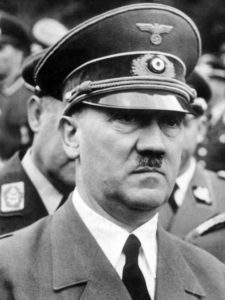 Adolf Hitler
Adolf Hitler
“For the sake of historical truth I must verify that only the Greeks, of all the adversaries who confronted us, fought with bold courage and highest disregard for death… “ (Excerpt of speech delivered to Reichstag on May 4, 1941)
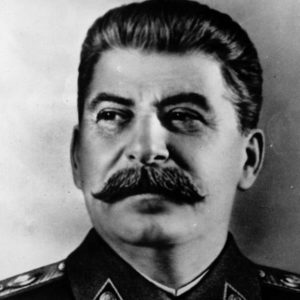 Joseph Vissarionovich Tzougasvili Stalin
Joseph Vissarionovich Tzougasvili Stalin
“I am sorry because I am getting old and I shall not live long enough to thank the Greek People, whose resistance decided WWII…” (From speech broadcast on Moscow radio on January 31, 1943, after the victory of Stalingrad and the capitulation of Marshal Paulus)
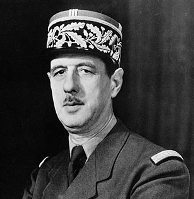 Charles de Gaulle
Charles de Gaulle
“I am unable to give the proper breadth of gratitude I feel for the heroic resistance of the People and the leaders of Greece.” (From a speech to French Parliament after the end of WWII)
Moscow radio programme
“You fought unarmed and won, small against big. We owe you gratitude, because you gave us time to defend ourselves. As Russians and as people we thank you.” (during Hitler’s attack on the U.S.S.R.)
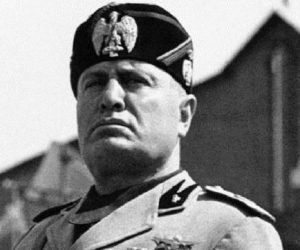 Benito Mussolini
Benito Mussolini
“The war with Greece proved that nothing is firm in the military and that surprises always await us.” (Excerpt of speech delivered on May 10, 1941)
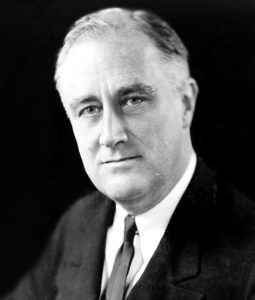 Franklin Roosevelt, President of the USA
Franklin Roosevelt, President of the USA
“On the 28th of October 1940 Greece was given a deadline of three hours to decide on war or peace but even if a three day or three week or three year were given, the response would have been the same. The Greeks taught dignity throughout the centuries. When the entire world had lost all hope, the Greek people dared to question the invincibility of the German monster, raising against it, the proud spirit of freedom.” (from speech delivered on June 10, 1943)
“The heroic struggle of the Greek people… against Germany’s attack, after she so thunderously defeated the Italians in their attempt to invade the Greek soil, filled the hearts of the American people with enthusiasm and moved their compassion.” (from speech delivered on April 25, 1941)
By the end of the war, 10% of the Greek population had perished. It took the Greek people many years to overcome the tragic devastation they had suffered. However, this small country showed the world at a time when it mattered the most, that freedom is worth fighting for. The sacrifices made by the Greek nation ultimately changed the course of history and contributed in preventing the fascism and nazism from dominating the world.




